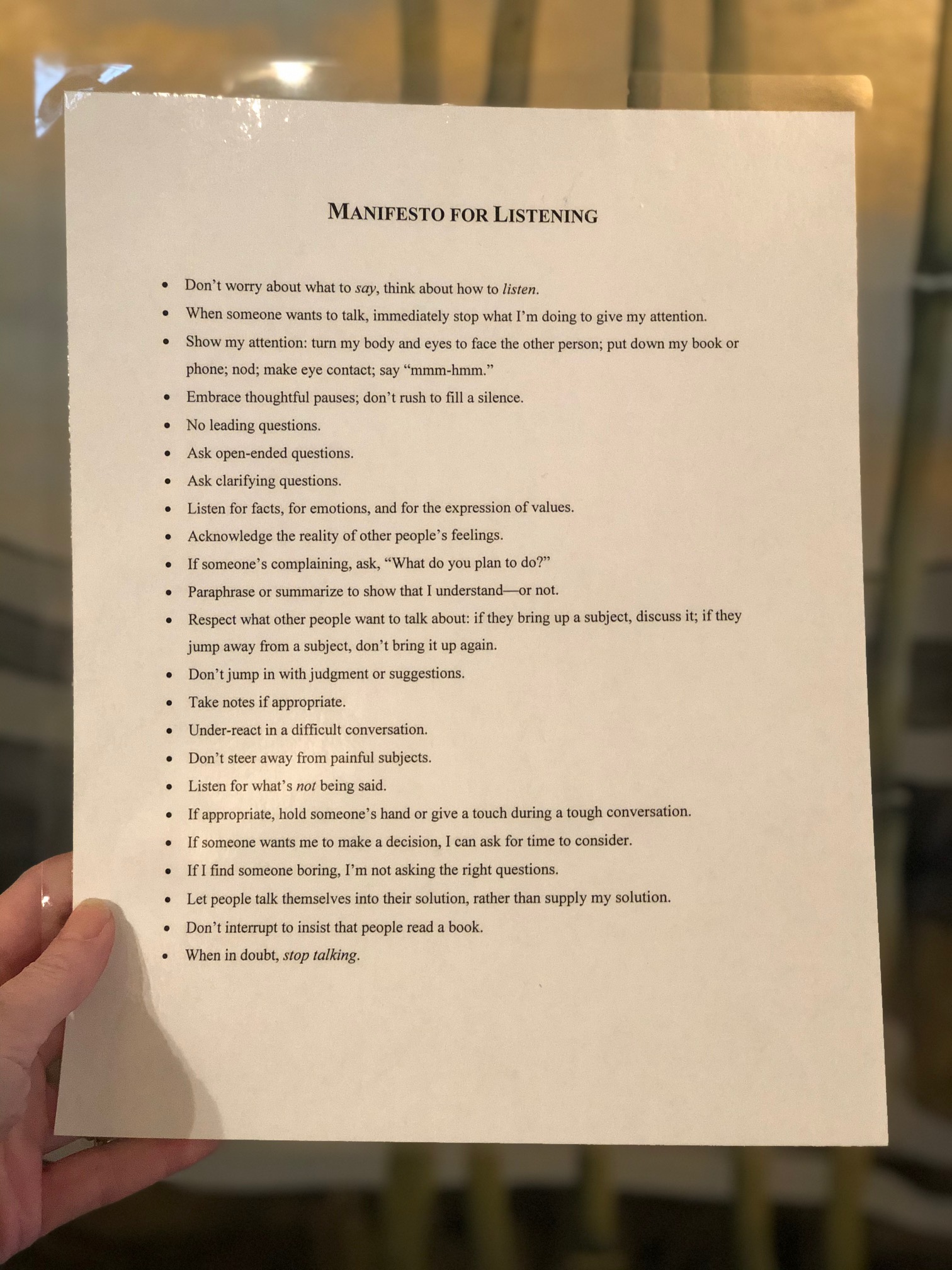For my book about my five senses, I’ve been investigating my sense of hearing—and so I’ve thought a lot about noise, silence, and listening.
True attentive listening is powerful, and arduous. I’m not a great listener, so to help me do a better job, I wrote a Manifesto for Listening. I do love a manifesto! (For instance, you can read my Happiness Manifesto, Habits Manifesto, an Outer Order, Inner Calm Manifesto, and Podcast Manifesto.)
Of course, to listen, I have to fall quiet. Just a few days ago, I realized that word “silent” has the same letters as the word “listen,” rearranged. Did everyone else know this?
Here’s my Manifesto. I laminated it and stuck it up on my bulletin board to help me remember to listen better:

- Don’t worry about what to say, think about how to listen.
- When someone wants to talk, immediately stop what I’m doing to give my attention.
- Show that I’m giving my attention: turn my body and eyes to face the other person; put down my book or phone; nod, make eye contact; say “mmm-hmm.”
- Embrace thoughtful pauses; don’t rush to fill a silence.
- No leading questions.
- Ask open-ended questions.
- Ask clarifying questions.
- Listen for facts, for emotions, and for the expression of values.
- Acknowledge the reality of other people’s feelings. (This is surprisingly difficult.)
- If someone’s complaining, ask, “What do you plan to do?”
- Don’t multi-task.
- Paraphrase or summarize to show that I understand—or not.
- Respect what other people want to talk about: if they bring up a subject, discuss it; if they jump away from a subject, don’t bring it up again (we all have our pet subjects that we love to discuss but others may not!)
- Don’t jump in with judgment or suggestions.
- Take notes if appropriate.
- Under-react in a difficult conversation.
- Don’t steer away from painful subjects. (I realized that I often do this, before I’m even consciously aware of what’s happening.)
- React with enthusiasm to good news. (Especially important with Jamie: research shows that partners’ response to good news is very important for the strength of a relationship)
- Listen for what’s not being said.
- If appropriate, hold someone’s hand or give a touch during a tough conversation.
- If someone wants me to make a decision, I can ask for time to consider.
- If I find someone boring, I’m not asking the right questions.
- Let people talk themselves into their solution, rather than supply my solution.
- Don’t interrupt to insist that people read a book. (This may be my particular problem. Whatever the challenge, I can’t resist pushing my favorite book on the subject. This is my way of showing love, but I should listen rather than interrupt to insist, “Here, write this down, you have to read this book.”)
- When in doubt, stop talking.


















